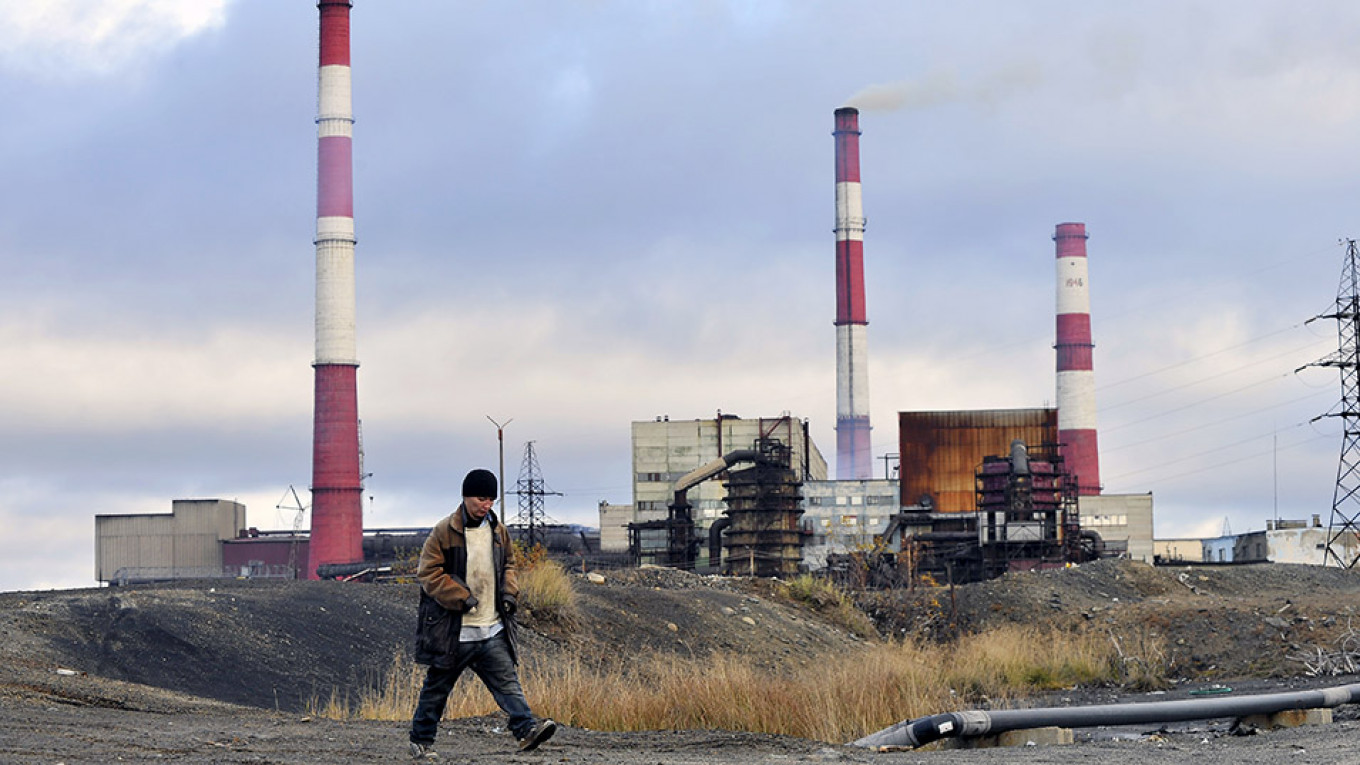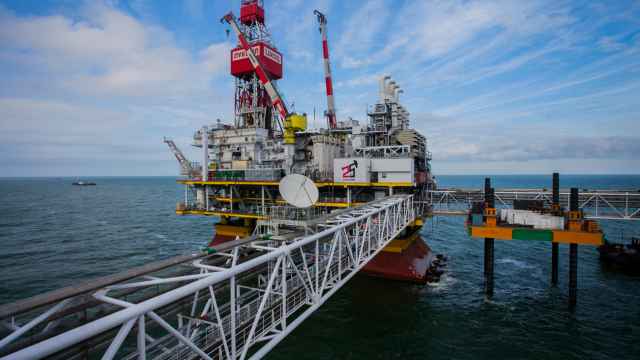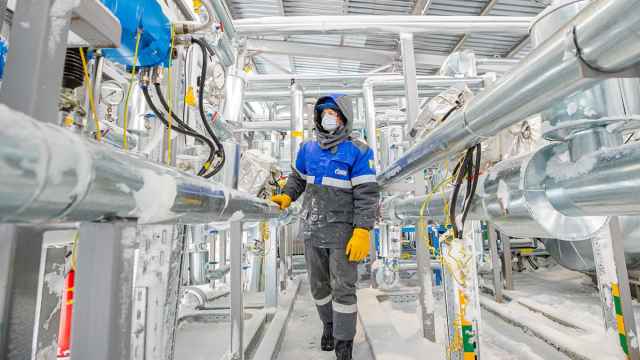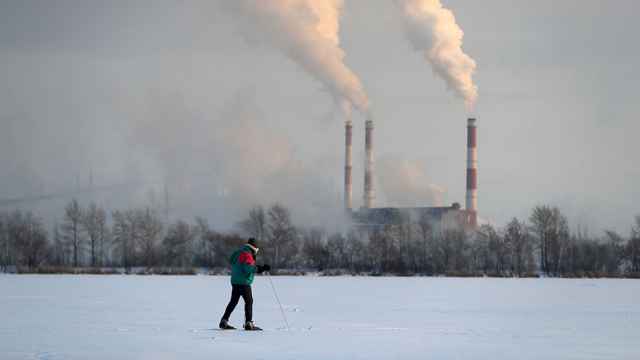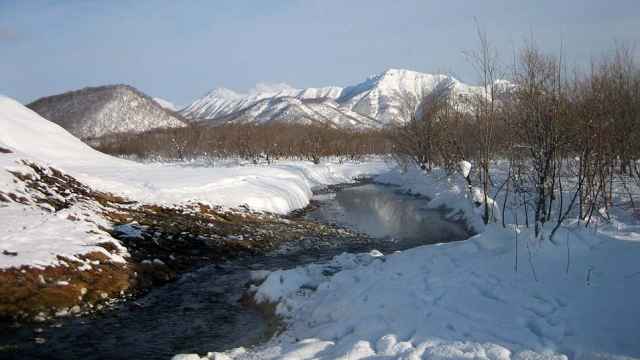Fear of extinction as a result of runaway climate change has shocked the world into scrambling to reduce carbon emissions and develop green technologies before it’s too late.
Russia’s most powerful business lobby, the Russian Union of Industrialists and Entrepreneurs (RSPP), has a different take on the crisis.
“We have to maximize our sales of gas, oil and coal as much as we can without stopping while there is still a buyer for it, and use that money to stimulate innovations in new technologies so we can keep up with other economies,” David Iakobachvili, the chairman of RSPP’s corporate social responsibility and sustainable development committee, told The Moscow Times.
“We have to think about what we will leave behind for our kids,” he added. “Cultures that didn’t think about this, well, they’re gone now.”
In 2015, 195 countries signed on to the Paris Agreement to limit global warming to well below 2 degrees Celsius above pre-industrial levels to fight climate change. Russia, the world’s fourth-biggest emitter of greenhouse gases, was one of them.
But because the Paris accord takes 1990 as its baseline for reducing emissions to 70% by 2030, Russia has already met its requirements, because the collapse of the Soviet Union in 1991 triggered one of the biggest economic contractions in recent history.
In September, Prime Minister Dmitry Medvedev finally ratified the deal just as Russia’s Natural Resources and Environment Ministry released a report warning that the country is warming twice as fast as the rest of the world. According to the ministry, if unchecked, this will result in epidemics, drought and famine, among other disasters. It will also, according to Russian government estimates, cost the country $2.3 billion per year.
To signal its commitment to fighting climate change nonetheless, the Russian government has tasked the Economic Development Ministry with drafting legislation to accompany the Paris Agreement. In its original form, the draft legislation included quotas on carbon emissions at Russia’s largest companies, a new national carbon trading system and penalties for the biggest polluters.
That was before RSPP stepped in.
At a March hearing at the State Duma, the group warned that the proposals would force companies to abandon investment plans. It also argued that increased energy prices and inflation would “negatively affect the well-being of ordinary people.”
Last month, the Kommersant business daily reported that the proposed measures have since been scrapped, and that the legislation, which is now at the final stages before being passed, will only include a climate audit.
‘Naive to take our money’
RSPP’s headquarters sits on a bend on the banks of the Moscow River just east of the Kremlin. The stately building is a former almshouse, built in the late 19th century at the behest of a wealthy philanthropist to provide accommodation for impoverished women from the merchant classes.
Today, it houses representatives from the companies that form the backbone of the Russian economy, most of them in the business of carbon and the targets of the Economic Development Ministry’s proposed measures. Skim through the list of committee members and you’ll find some of Russia’s most well-known oligarchs.
In an interview in his office this week, RSPP’s vice president for corporate relations Alexander Varvarin at times grew heated defending the group’s lobbying against the proposed climate regulations for its members.
“We are well aware that certain new systems for tracking carbon footprints can be introduced,” he said, referring to taxes that European countries are considering implementing on imports like oil and gas. “We are closely following what other countries are doing, and for now, these risks haven’t been realized.”
“It would be naive to take our money and decide how to solve our problems for us,” he added, noting the plans to fine companies and a suggested tax on carbon that was also reportedly axed from the proposed legislation. “Do you really think that we do not understand all of our risks?”
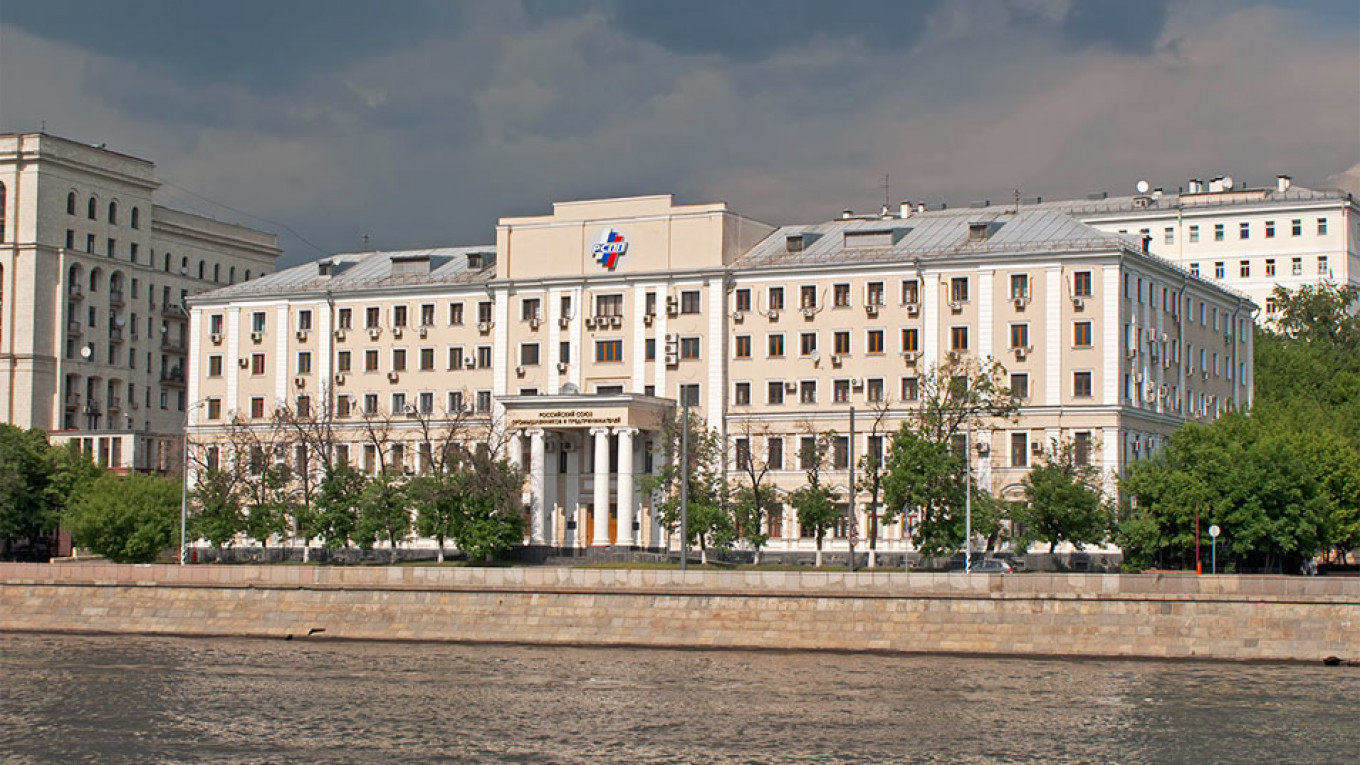
In arguing that there was no current need for additional regulation, Varvarin pointed out that Russia has already fulfilled its Paris agreement requireents.
Critics argue that signing the accord with the knowledge that there is no obligation to change behavior is a cynical strategy that allows Russia to be seen as doing something about climate change without actually doing anything substantive.
“It’s good of course to talk about moving to renewable sources of energy,” Varvarin continued. “But then let’s count how much that will cost, its effect on inflation for our companies, how much we will have to increase the price of our products, and how much utility prices will go up for people.”
In its consultations with Russian officials, RSPP has not shied away from hammering home its view that ordinary people will suffer under green legislation.
“All of our big companies bankroll Russian regions — not just with our taxes, but with donations for infrastructure. We are talking about billions,” said one RSPP member who helped lobby against the Economic Development Ministry’s proposals and who asked to remain anonymous. “What we showed was that there would be huge holes in local budgets if these measures were passed.”
Existential shock
Leading experts on sustainable development, however, argue that, even putting aside the immediate need for climate change mitigation, Russia’s leading businesses will only be shooting themselves in the foot further down the road if they do not try to move away from carbon-heavy industries — now.
“I do fear that over a 20-year horizon, Russia faces an existential shock,” said Charles Robertson, global chief economist at Renaissance Bank. “It’s like the Saudi oil minister said in the 1970s: ‘The Stone Age didn't end for lack of stone, and the Oil Age will end long before the world runs out of oil.’”
Not only will these companies be hurting themselves as the global economy shifts to renewable energy sources, said Sergei Bobylev, an economics professor at Moscow State University specializing in sustainable development, but also the regions and ordinary people they claim to be protecting in the short-term.
“Russian authorities and businesses are short-sighted,” Bobylev said. “Our economy is based on companies like Lukoil, Gazprom, Rosneft and so on. And the prognosis for them isn’t looking very good.”
“Costs may very well go up at first, but if we don’t implement these carbon regulations and these companies suffer, poor people will lose even more down the line,” he added.
Yet even RSPP’s argument that ordinary people could be hurt by a tax on carbon is disputable, said Igor Bashmakov, executive director of the Center for Energy Efficiency and a member of the United Nations Intergovernmental Panel on Climate Change.
He explained that consumers won’t feel rising energy costs if energy efficiency increases.
“Energy prices are a careful science,” he added. “It’s like with a doctor and medication: you have to take two tablets a day, not all at once. With energy prices, you need a good doctor who can write the correct prescription.”
And in a country with cheap energy like Russia, Bashmakov continued, the proposed regulations that have since been dropped are especially needed because there is no stimulus to develop modern technologies. “Taxing carbon is a way to promote this shift,” he said.
In the short-term, however, Russia isn’t seeing the outside signals that would make it hurry toward attempting to make its economy sustainable, said Alexei Kokorin, head of the Climate and Energy Program at WWF Russia.
“If you look at the past two years, worldwide emissions have continued to rise,” he said. “Russia sees that other countries aren’t doing very much, so it’s wondering: Why should we?”
A Message from The Moscow Times:
Dear readers,
We are facing unprecedented challenges. Russia's Prosecutor General's Office has designated The Moscow Times as an "undesirable" organization, criminalizing our work and putting our staff at risk of prosecution. This follows our earlier unjust labeling as a "foreign agent."
These actions are direct attempts to silence independent journalism in Russia. The authorities claim our work "discredits the decisions of the Russian leadership." We see things differently: we strive to provide accurate, unbiased reporting on Russia.
We, the journalists of The Moscow Times, refuse to be silenced. But to continue our work, we need your help.
Your support, no matter how small, makes a world of difference. If you can, please support us monthly starting from just $2. It's quick to set up, and every contribution makes a significant impact.
By supporting The Moscow Times, you're defending open, independent journalism in the face of repression. Thank you for standing with us.
Remind me later.



